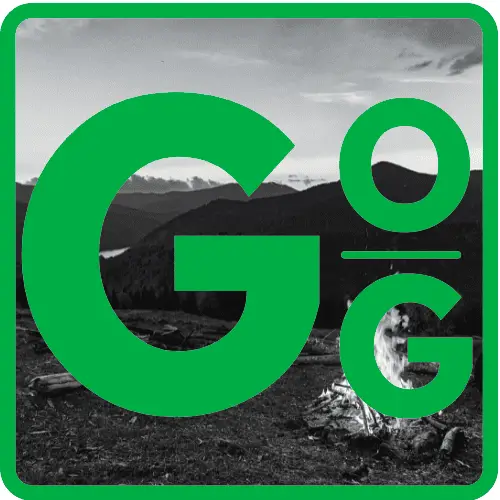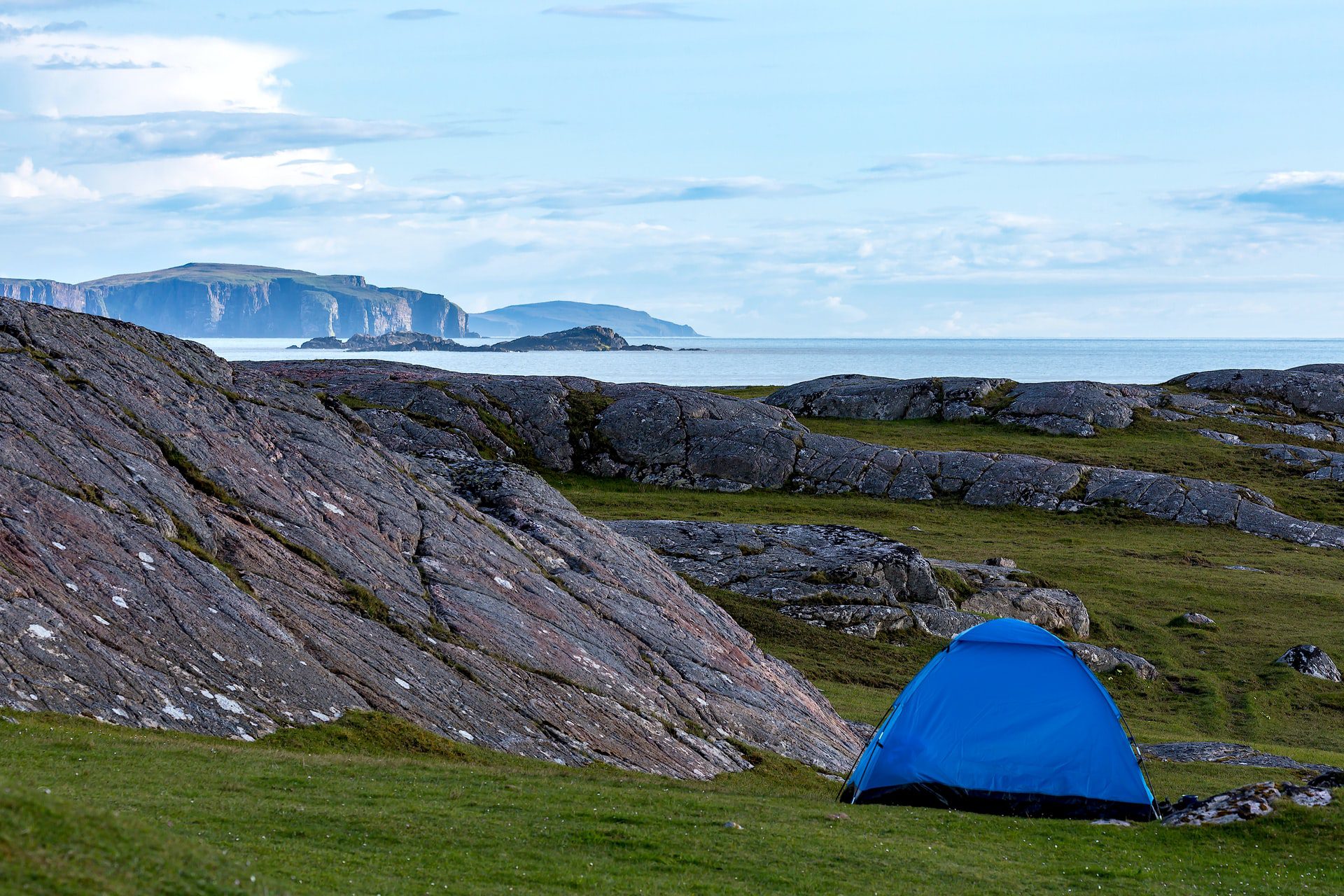With it’s beautiful lochs, amazing forests and tall mountains, Scotland is a mecca for those who enjoy wild camping.
In this guide, I will walk you through all you need to know when it comes to wild camping in Scotland.
Is wild camping legal in Scotland?

Wild camping in Scotland is legal, but there are certain rules and regulations that you will need to follow if you would like to wild camp in Scotland. In simple terms, make sure you stay safe, respect the countryside and wildlife and you’re welcome to stay.
You can read the Land Reform (Scotland) Act 2003 here, but to summarise:
- The rights apply to everyone
- You have the right to be on land or cross land
- You may do so for recreational purposes or to carry out a relevant educational activity
- This must be done with the purpose of leaving the land (so you cannot remain on the land long term)
In terms of wild camping, this means you are free to camp on any land in Scotland as long as you do so responsibly.
What are the rules for wild camping in Scotland?

The legal right to access is given via the Land Reform (Scotland) Act 2003. The rules or guidance for wild camping in Scotland can be found in the Outdoor Access Code. The Code States:
Access rights extend to wild camping. This type of camping is lightweight, done in small numbers and only for two or three nights in any one place. You can camp in this way wherever access rights apply, but help to avoid causing problems for local people and land managers by not camping in enclosed fields of crops or farm animals and by keeping well away from buildings, roads or historic structures. Take extra care to avoid disturbing deer stalking or grouse shooting. If you wish to camp close to a house or building, seek the owner’s permission.
Outdoor Access Code – https://www.outdooraccess-scotland.scot/practical-guide-all/camping
To summarise the above, you should avoid camping in the following places:
- Crop fields
- Fields with farm animals (although you can pass through these)
- Close to buildings
- Close to roads
- Close to historic structures
- Private gardens
- Places where you need to pay to enter
- Quarries
Try not to camp in large groups. The idea is to camp in groups that are unlikely to cause a nuisance to other land users, so smaller groups who are respectful to the local area will be welcomed much more that those planning a rave!

You should also try to stay for only two or three nights at any one camping spot. This is to avoid longer term damage to land and also give other users the chance to use the land as well.
So that others can enjoy the beautiful countryside that Scotland has to offer, there are a few other guidelines that you should follow:
- Take all litter with you when you pack up your camp
- Use a stove for cooking where possible to avoid the need for unnecessary fires
- If you are having a fire, check the advice on the local fire risk conditions and make sure it is small and controlled
- Try to bring your own firewood to avoid damaging the local nature and habitats by collecting wood locally
- If you can’t take it with you or use any local amenities, bury human waste and urinate at least 30 metres from open water
- Remove all traces of your tent and campsite, including any debris from fires
At the heart of the legislation and guidance is the overriding principle that people should enjoy the land freely and leave it in a state similar to how they found it.
Can I wild camp anywhere is Scotland?

You can wild camp anywhere in Scotland, other than those specific types of land identified in the outdoor access code. There is only one area where the rules differ and that is the Loch Lomand & The Trossachs National Park, where you might need a permit to wild camp.
Loch Lomand & The Trossachs National Park Byelaws
Due to antisocial behaviour and damage to the local environment, byelaws were put in place to protect the national park for future visitors. These byelaws limit wild camping numbers in some areas of the national park. In the areas where these byelaws apply, you will require a permit to camp.

The good news is that only 4% of the national park is protected by these byelaws, which means you are free to camp in over 96% of the national park without restrictions. They are also only applicable between 1st March to 30 September, meaning you can camp in these restricted places during the autumn and winter months without the need for a permit.
Permits can be booked online here. Here’s some useful information about the permits:
- Permits cost £3 per tent or motorhome/campervan per night. You will need to purchase a permit for each tent you put up in the camping area
- You can book camping for up to three nights in one area
- You can book up to two weeks in advance
- The permit allows you to camp anywhere within your chosen permit area
- You can arrive from 1pm on the day your permit applied and must leave by 11am the day your permit runs out
Can you get fined for wild camping in Scotland?
In general you cannot be fined for wild camping in Scotland. The only place that fines are applicable is the permit area applicable in the Loch Lomand & The Trossachs National Park. You can be fined up to £500 if you camp without a permit in these areas.
Is wild camping in Scotland safe?
On the whole wild camping in Scotland is safe. There are very few dangerous animals in Scotland that you would need to be cautious of when enjoying the Scottish countryside.

Animals such as cows and deer have been known to attack when trying to protect their young, so try and avoid camping where they are obviously present.
More prevalent in Scotland is the tick, which can cause Lyme disease. Wearing long trousers when walking in woodland and long grass is a good way to avoid bites from ticks.
The main dangers of wild camping in Scotland are based around your behaviour when camping.
Fires should be small, controlled and never left unattended. It is especially important that if you are having a fire, you do so carefully and make sure it is put out completely. This is very important in wooded areas and peaty land, which have in the past been the unfortunate victim if wildfires, due entirely to people not behaving responsibly.
Summary
Scotland is the most open country in the UK when it comes to wild camping. You can camp pretty much anywhere you want as long as you are respectful and don’t outstay your welcome.
If you are concerned about your impact on the local environment, there are plenty of dedicated camp sites where you can camp as well.
Resources
- Visit Scotland Guide to Wild Camping
- Outdoor Access Code Wild Camping Guide
- Land Reform (Scotland) Act 2003
- Loch Lomand & The Trossachs National Park Authority

